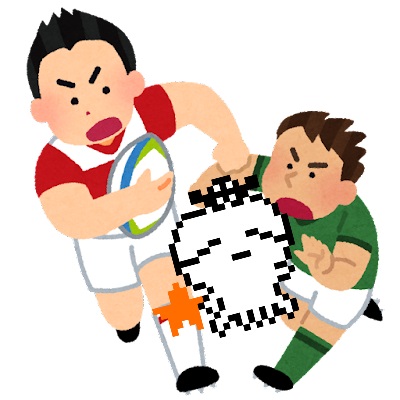【Ippy Mizuhara Update】最新情報
追記)
2023年12月9日、大谷翔平さんのドジャース(Dodgers)移籍が決定しました。
2024年3月MLB開幕直後、水原一平氏の不祥事(銀行詐欺、虚偽申告、学歴詐称等)が報道されました。※
2024年(令和6年)6月6日ロールケーキの日、水原一平さんがアメリカのロサンゼルス界隈でウーバーイーツ配達員として働いている姿が目撃されている、というニュースが報道されました。
借金返済のためにがんばってるんだね!
なお、ウーバーイーツ配達員のカリフォルニアでの時給は約18ドル、1ドル150円で換算すると大体2700円くらいです。すごいですね。
♱⋰ ⋱✮⋰ ⋱♱⋰ ⋱✮⋰ ⋱♱⋰ ⋱✮⋰ ⋱♱⋰⋱✮⋰⋱
本編
水原一平さんをご存知ですか?
メジャーリーグ(MLB)、ロサンゼルス・エンゼルスの大谷翔平選手の通訳として、野球好きな方にはおなじみの人だと思います。
投げては三振の山、打っては特大ホームランだらけという大谷翔平さんの大活躍にあわせて、メディアでも水原一平さんを見ない日はないような気がしますよね!
オオタニサンがホームランを打った直後、投打で忙しいオオタニサンの代わりに兜セレブレーションしてもらっていた時は、なんか非常にホッコリしました。
それはさておき、水原一平さんは通訳をされているだけあって、当然ながら英語はネイティブレベルにペラッペラです。
日本語も普通に堪能なので日英通訳としてはもちろん優秀で、さらにお人柄も上品で良きですよね。※
※
違法賭博問題の渦中で、自身がギャンブル依存症であることを水原一平氏本人が明らかにしました。
♱⋰ ⋱✮⋰ ⋱♱⋰ ⋱✮⋰ ⋱♱⋰ ⋱✮⋰ ⋱♱⋰⋱✮⋰⋱
水原一平さんはどんな人?
水原一平さんは1984年12月31日に北海道苫小牧市で生まれ、6歳まで同市で過ごしました。
お誕生日が大晦日ということは、お正月と一緒になって賑やかに祝ってもらえそうですね!
(それが良いのか良くないのかは本人のみが知ることですが)
その後、父親が和食料理人でロサンゼルスに板前をはじめたことがきっかけでアメリカに移住し、2007年にカルフォルニア大学リバーサイド校を卒業されました。
ちなみに大谷翔平さんは日ハムでプレーしていたという北海道つながりで、そんな二人がロサンゼルスで出会うなんて何とも不思議な縁ですね。
水原一平さんは日本ハムファイターズでも通訳として働いていたことがありました。
さらに詳しく言うと、
水原一平さんはカリフォルニア大学リバーサイド校を卒業後、通訳者としてロサンゼルス・ドジャースに所属していた野茂英雄の活躍によってMLBに興味を持ち、2012年2月には岡島秀樹の専属通訳としてニューヨーク・ヤンキースに採用されたそうです。
その後、2012年からは帰国して北海道日本ハムファイターズの球団通訳となり、外国人選手の通訳や生活のサポートを務めていたそうですよ。
それにしても子供の頃にアメリカ移住って、なんか憧れる。
……
♱⋰ ⋱✮⋰ ⋱♱⋰ ⋱✮⋰ ⋱♱⋰ ⋱✮⋰ ⋱♱⋰⋱✮⋰⋱
水原一平さんはTOEIC受けたことあるの?
そんな水原一平さん、これまでTOEICを受けたことはあるのだろうか?
調べてみたところ、水原一平さんのTOEICスコアは公式に発表されてはいないようです。
つまり、これまでTOEICを受験したことは全くないのかもしれません。
まあ、ふつうにアメリカで暮らしてたら、おそらくTOEICとの接点はないのでしょうね。
もし水原一平さんがTOEIC受けたら何点とれる?
水原一平さんは小学校低学年からずっとアメリカに住んでいて、大学もカリフォルニア大学リバーサイド校を卒業されています。
その外見とは裏腹にもう中身はアメリカ人と遜色ないということで、もしTOEICを受けたら普通に990点の「満点」でしょう。
リスニングパートは途中で眠くなるくらいゆっくりに聴こえるでしょうし、
リーディングの時間も45分くらいで、余裕で全部解いてしまうかもしれません。
♱⋰ ⋱✮⋰ ⋱♱⋰ ⋱✮⋰ ⋱♱⋰ ⋱✮⋰ ⋱♱⋰⋱✮⋰⋱
TOEICスコアについて
今更ですがTOEICは、日本と韓国においてとても人気のある英語のテストです。
特にビジネスで英語をガンガン使っていきたいと考えている人にとっては、絶対に受けるべきテストですよね。
ここで、スコアについてちょっと見ていきましょう!
日本人のTOEIC平均スコアは?
TOEIC Listening & Reading Test 2020年の世界の受験者スコアとアンケート結果を発表したところ、日本の平均スコアは531点でした。
TOEICスコアが高い人って?
TOEICスコアが高い人の特徴として、点数が高いということは英語の基礎力があり、さらに「読んだり聞いたりする英語の力は十分ある」ということです。
また、TOEICスコア別の特徴については、一般的には次のようになっています。
(すべての人に当てはまるものではありません)
✓400点未満の人:英語が苦手で、基礎力が不足している。
✓400点~495点の人:英語がやや苦手で、基礎力がやや不足している。
✓500点~595点の人:英語がある程度できるが、ビジネス英語はまだまだ。
✓600点~695点の人:英語が比較的得意で、ビジネスシーンでもいける。
✓700点~795点の人:英語がかなり得意で、海外出張や留学にも対応可能。
✓800点~895点の人:英語が非常に得意で、海外で働くことも普通に可能。
✓900点以上の人:英語が大体ネイティブレベル。
♱⋰ ⋱✮⋰ ⋱♱⋰ ⋱✮⋰ ⋱♱⋰ ⋱✮⋰ ⋱♱⋰⋱✮⋰⋱
TOEIC初心者でも最短で目標達成できる!スタディチェーン
- TOEICのスコアが伸び悩んでいる!
- 短期間でTOEICスコアを上げたい!
- TOEICの勉強を要領よくやりたい!
……などのニーズに、的確に応えてくれるブログがこちらの「スタディチェーン」。
独学でTOEICを攻略したいあなたにもぴったりな、必見コンテンツが盛り沢山ですよ!
スタディチェーンブログはこちら↓
TOEIC初心者でも600・700・800点取れる勉強法を徹底解説!【独学】
スタディチェーンブログは独学で大学受験や英語資格や英検学習にチャレンジする人はもちろんキャリアに悩む人など全ての学習、キャリア、夢に挑戦する人を応援する大学受験の勉強法や英検の勉強法や参考書紹介などの役立つ情報を発信するブログです。
スタディチェーン
日英通訳者に必要な能力とは?
TOEICスコアはさておき、やっぱり通訳って一般的に難しいイメージがありますよね。
日英通訳者には、日本語と英語の両方の言語を効果的につなぐために、多様なスキルが必要です。
以下に、日英通訳者に必要な主なスキルと資質をいくつかご紹介します。
- バイリンガルな能力:
通訳者は、日本語と英語の両方の言語において優れた能力を持つ必要があります。口頭と書面の両方で流暢にコミュニケーションができることが求められます。複雑なアイデアを正確に理解し、リアルタイムで伝えることができる能力が必要です。 - 文化的な適応力:
通訳者は、日本と英語圏の文化的なニュアンスや習慣を理解することが重要です。コミュニケーションスタイル、エチケット、社会的な規範の違いについて認識し、正確かつ文化的に敏感な通訳を行う必要があります。 - 対人スキルとコミュニケーション能力:
通訳者は、クライアントとの信頼関係を築き、専門的な関係を維持するために、強力な対人スキルを必要とします。聞く、話す、通訳する能力に優れ、メッセージを正確かつ効果的に伝えることができる必要があります。 - 専門知識:
通訳者は、業界によって異なりますが、スポーツ、ビジネス、音楽、法律、医学、技術、政府などの分野において専門知識を必要とする場合があります。業界固有の用語や概念に精通し、正確な通訳を円滑に行う必要があります。 - 記憶力とノートテイキング:
通訳者は、通訳しながら一時的な記憶から情報を引き出す必要があります。良好な記憶力と簡潔かつ効率的なノートテイキングの能力は、正確性と一貫性を保つために重要です。 - 適応性と迅速な思考力:
通訳者は、会議、ミーティング、法廷手続き、医療相談など、さまざまな状況に適応できる能力が求められます。迅速に考え、場に即した決断を下し、コミュニケーションの流れを維持することができる必要があります。 - 倫理的な基準:
通訳者は、機密保持や公平性などの厳格な倫理基準に従う必要があります。個人の意見や偏見を通訳中に表現せず、専門的な境界を守る必要があります。 - 専門的なトレーニングと認定:
必須ではありませんが、通訳の形成や認定プログラムなどの形式的なトレーニングは、通訳者に貴重なスキルや知識を提供することができます。日本翻訳者協会やAmerican Translators Associationなどの認められた組織からの認定は、信頼性と市場性を向上させます。
これらのスキルは、通訳の業務の具体的な文脈や要件によって異なる場合があり、また一部の状況では同時通訳や視訳など、さらに高度なスキルが必要となる場合があります。
日英通訳者は高品質な通訳サービスを提供するために、継続的な専門教育や言語のトレンドや専門知識の最新情報に常に取り組んでいます。
これらのスキルを持ち合わせ、大谷翔平さんの通訳を難なくこなす水原一平さんもまた、大谷選手と同じく神がかりの日本人と言えるかもしれません!
♱⋰ ⋱✮⋰ ⋱♱⋰ ⋱✮⋰ ⋱♱⋰ ⋱✮⋰ ⋱♱⋰⋱✮⋰⋱
英語力アップに効果的なツールは?→Audible
TOEICリスニングパート対策には、耳読書が効果的です↓
Audible♱⋰ ⋱✮⋰ ⋱♱⋰ ⋱✮⋰ ⋱♱⋰ ⋱✮⋰ ⋱♱⋰⋱✮⋰⋱
Who is Ippei Mizuhara?
Ippei Mizuhara was born on 31 December 1984 in Tomakomai, Hokkaido, Japan, and lived there until the age of six.
He later immigrated to the USA after his father, a Japanese chef, began working as a chef in Los Angeles, and graduated from the University of California, Riverside in 2007.
What skills do Japanese-English interpreters need?
Japanese-English interpreters require a diverse set of skills to effectively bridge the language and cultural gap between Japanese and English speakers.
Here are some key skills and qualities that are important for Japanese-English interpreters:
- Bilingual Proficiency: Interpreters must have an exceptional command of both Japanese and English languages, including fluency in spoken and written forms. They should be able to understand and communicate complex ideas accurately and in real-time.
- Cultural Competence: Understanding the cultural nuances and customs of both Japanese and English-speaking countries is vital for interpreters. They should be aware of cultural differences in communication styles, etiquette, and social norms to ensure accurate and culturally sensitive interpretation.
- Interpersonal and Communication Skills: Interpreters need strong interpersonal skills to establish rapport with clients and maintain professional relationships. They should possess excellent listening, speaking, and interpreting skills to convey messages accurately and effectively.
- Knowledge of Subject Matter: Depending on the field they work in, interpreters may require specialized knowledge in areas such as sports, business, music, law, medicine, technology, or government. They should be familiar with industry-specific terminology and concepts to facilitate accurate interpretation.
- Memory and Note-Taking: Interpreters often need to recall information from short-term memory while simultaneously interpreting. Good memory skills and the ability to take efficient and concise notes are essential to ensure accuracy and coherence in interpretation.
- Adaptability and Quick Thinking: Interpreters must be adaptable to various settings, such as conferences, meetings, legal proceedings, or medical consultations. They should be able to think quickly and make decisions on the spot to maintain the flow of communication.
- Ethical Standards: Interpreters must adhere to strict ethical standards, including confidentiality and impartiality. They should maintain professional boundaries and not express personal opinions or bias during interpretation.
- Professional Training and Certification: While not mandatory, formal training in interpretation, such as a degree or certification program, can provide interpreters with valuable skills and knowledge. Certification from recognized organizations, such as the Japan Association of Translators or the American Translators Association, can enhance credibility and marketability.
It’s important to note that these skills may vary depending on the specific context and requirements of the interpreting assignment.
Some situations may demand additional skills, such as simultaneous interpretation or sight translation.
Continuous professional development and staying updated with language trends and subject matter expertise are crucial for Japanese-English interpreters to provide high-quality interpretation services.
♱⋰ ⋱✮⋰ ⋱♱⋰ ⋱✮⋰ ⋱♱⋰ ⋱✮⋰ ⋱♱⋰⋱✮⋰⋱
最後までお読みいただきありがとうございました。
この記事があなたのお役に立ちましたら幸いです!
ではノシ
If Ippei Mizuhara took the TOEIC, what would his score be?


















